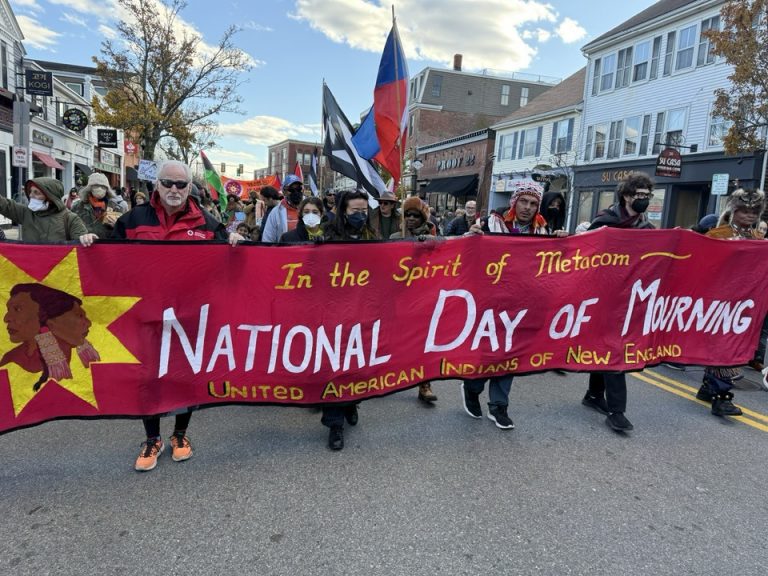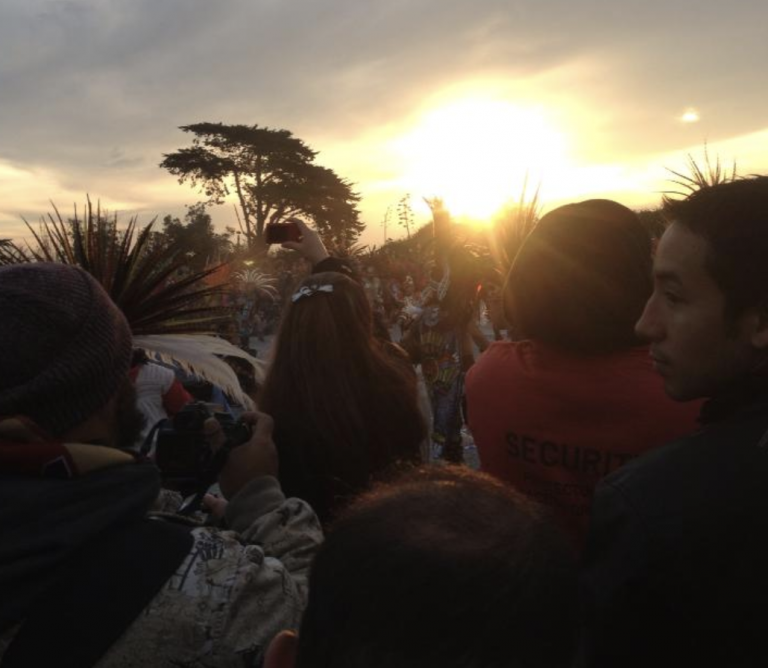56th National Day Of Mourning Observed In Plymouth, Massachusetts
United American Indians of New England (UAINE) has called for the 56th National Day of Mourning in Plymouth, Massachusetts, on Thursday, November 27, 2025 at 12 o'clock noon. Participants gathered by the statue of Massasoit on Cole's Hill above the Plymouth waterfront.
Since 1970, hundreds of Native people and non-Native allies have gathered annually in Plymouth on U.S. Thanksgiving Day.
According to UAINE co-leader Kisha James, who is Aquinnah Wampanoag and Oglala Lakota and the granddaughter of Wamsutta Frank James, the founder of National Day of Mourning, “Native people have no reason to celebrate the arrival of the Pilgrims.















